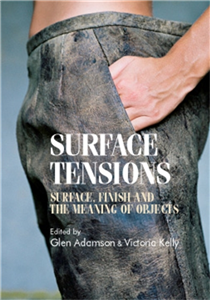Your Search Results
-
Promoted Content
-
Promoted Content
-
 Trusted Partner
Trusted Partner
-
 Trusted Partner
Trusted Partner
-
 Trusted Partner
Trusted Partner
-
 Trusted Partner
Trusted Partner
-
 Trusted Partner
Trusted Partner
-
 Trusted Partner
Trusted Partner
-
 Trusted Partner
April 2023
Trusted Partner
April 2023Das Gespenst der Inflation
Wie China der Schocktherapie entkam | Von der Erfinderin der Gaspreisbremse
by Isabella M. Weber, Stephan Gebauer
Ein Lehrstück über den Umgang mit Preissteigerungen Nach dem Ende von Maos Herrschaft stand die politische Führung in China Ende der siebziger Jahre vor gewaltigen Problemen: Wie sollte sie das bankrotte Wirtschaftssystem neu erfinden? Wie eine galoppierende Inflation vermeiden, die als Schreckgespenst durch das Land spukte? Durch Schocktherapie oder schrittweise Reformen? Letztendlich obsiegten die Kräfte, die für einen staatlich gelenkten Wandel plädierten. Anders als Russland, das nach dem Zusammenbruch des Kommunismus in einen katastrophalen Abwärtsstrudel geriet, erlebte China einen beispiellosen Aufstieg. Isabella M. Weber, eine der bedeutendsten Ökonominnen ihrer Generation, zeichnet in ihrem hoch gelobten Buch die damaligen Debatten um die Neugestaltung des chinesischen Wirtschaftssystems minutiös nach und ordnet diese Diskussionen in die langen Traditionen des ökonomischen Denkens im Reich der Mitte und des Westens ein. Insbesondere zeigt sie, wie es gelang, die Inflation zu begrenzen. Chinas Weg zurück in die Weltwirtschaft, so Weber, ist nicht nur die Geschichte einer einzigartigen Transformation. Angesichts der Verwerfungen auf den Energiemärkten und der dramatisch gestiegenen Lebenshaltungskosten sind die Auseinandersetzungen um Preiskontrollen und andere staatliche Eingriffe zudem lehrreich für aktuelle Debatten.
-
 Trusted Partner
Humanities & Social SciencesApril 2020
Trusted Partner
Humanities & Social SciencesApril 2020Early modern war narratives and the Revolt in the Low Countries
by Raymond Fagel, Leonor Álvarez Francés, William G. Naphy, Beatriz Santiago Belmonte
-
 Trusted Partner
Trusted Partner
-
 Trusted Partner
Humanities & Social SciencesSeptember 2013
Trusted Partner
Humanities & Social SciencesSeptember 2013Lisbon rising
Urban social movements in the Portuguese Revolution, 1974–75
by Pedro Pinto
Lisbon rising explores the role of a widespread urban social movement in the revolutionary process that accompanied Portugal's transition from authoritarianism to democracy. It is the first in-depth study of the widest urban movement of the European post-war period, an event that shook the balance of Cold War politics by threatening the possibility of revolution in Western Europe. Using hitherto unknown sources produced by movement organisations themselves, it challenges long-established views of civil society in Southern Europe as weak, arguing that popular movements had an important and autonomous role in the process that led to democratisation, inviting us to rethink the history and theories of transitions in the region in ways that account for popular agency. Lisbon rising will be of interest not only to students of twentieth-century European history, but across disciplines to students of democratisation, social movements and citizenship in political science and sociology. ;
-
 Trusted Partner
Humanities & Social SciencesAugust 2002
Trusted Partner
Humanities & Social SciencesAugust 2002The rise of the Nazis
by Conan Fischer, Mark Greengrass
How and why did the Nazis seize power in Germany? Nearly seventy years on, the question remains heated and important discoveries continue to challenge long standing assumptions. Beginmning with an overview of the historical context within which Nazism grew, looking at the foreign relations, politics and society of Weimar and in particular at the role of the elites in the rise of Nazism. The book questions the anatomy of Nazism itself: What lent Nazi ideology its coherence and credibility? What distinguished the Nazi's programme from their competitors' and how did they project it so effectively? How was Hitler able to put together and fund an organisation so quickly and effectively that it could launch a sustained assault on Weimar? Who supported the Nazis and what were their motives? Where, precisely, does Nazism belong in the history of Europe?. Since the publication of the first edition, important new works have appeared and this new scholarship has been incorporated into the text. ;
-
 Trusted Partner
Humanities & Social SciencesJune 1999
Trusted Partner
Humanities & Social SciencesJune 1999The rise and fall of world orders
by Torbjorn Knutsen
Drawing in lessons from 400 years of Great-Power politics, this volume challenges both the "declinist" arguments and the overstretched hypothesis of Paul Kennedy to develop an alternative approach to the debate on the rise and fall of the Great Powers. The first half of the book compares the Spanish, Dutch and the First and Second British world orders. It identifies their common features in order to find the most salient causes for their rise as world powers, and the most probable reasons for their decline. The second half of the book addresses the American world order in the 20th century, from Pax Americana to the End of US Hegemony. The author sees the dissolution of the Soviet Union and the resurgence of the US as evidence of the role played by normative dimensions, commonly underestimated in International Relations analysis. Theoretically challenging, Knutsen's volume provides a fresh approach to debates in international relations aimed at both students and scholars.
-
 Trusted Partner
Humanities & Social SciencesApril 2023
Trusted Partner
Humanities & Social SciencesApril 2023The fall and rise of the English upper class
Houses, kinship and capital since 1945
by Daniel R. Smith
The fall and rise of the English upper class explores the role traditionalist worldviews, articulated by members of the historic upper-class, have played in British society in the shadow of her imperial and economic decline in the twentieth century. Situating these traditionalist visions alongside Britain's post-Brexit fantasies of global economic resurgence and a socio-cultural return to a green and pleasant land, Smith examines Britain's Establishment institutions, the estates of her landed gentry and aristocracy, through to an appetite for nostalgic products represented with pastoral or pre-modern symbolism. It is demonstrated that these institutions and pursuits play a central role in situating social, cultural and political belonging. Crucially these institutions and pursuits rely upon a form of membership which is grounded in a kinship idiom centred upon inheritance and descent: who inherits the houses of privilege, inherits England.
-
 Trusted Partner
Humanities & Social SciencesOctober 2024
Trusted Partner
Humanities & Social SciencesOctober 2024Egypt and the rise of fluid authoritarianism
Political ecology, power and the crisis of legitimacy
by Maria Gloria Polimeno
Egypt and the rise of fluid authoritarianism focuses on the struggle of the post-2013 political authorities for internal political legitimacy after the crisis following the 2013 coup d'état. It explores the microstructural and macro-systemic dynamics of leadership, power, protests and the authority-making process in political systems. These cannot simply be defined as structural, political, social and economic projections of the authoritarianism of the past, but rather as a rupture with that past. The book offers a complex, ground-breaking socio-political and economic analysis into how the forging of an internal political legitimacy claim has eventually modified the regime in Egypt along the authoritarian spectrum, turning into a fluid autocracy closer to a non-exclusivist personalist regime. This shift had implications that resonated both politically and economically.
-
 Trusted Partner
The ArtsNovember 2013
Trusted Partner
The ArtsNovember 2013Surface tensions
Surface, finish and the meaning of objects
by Christopher Breward, Glenn Adamson, Victoria Kelley, Bill Sherman
Surfaces are often held to be of lesser consequence than 'deeper' or more 'substantive' aspects of artworks and objects. Yet it is also possible to conceive of the surface in more positive terms: as a site where complex forces meet. Surfaces can be theorized as membranes, protective shells, sensitive skins, even thicknesses in their own right. The surface is not so much a barrier to content as an opportunity for encounter: in new objects, the surface is the site of qualities of finish, texture, the site of tactile interaction, the last point of contact between object and maker, and the first point of contact between object and user. Surface tensions includes sixteen essays that explore this theoretically uncharted terrain. The subjects range widely: domestic maintenance; avant-garde fashion; the faking of antiques; postmodern architecture and design; contemporary film costume. Of particular emphasis within the volume are textiles, which are among the most complex and culturally rich materialisations of surface. As a whole, the book provides insights into the whole lifecycle of objects, not just their condition when new. ;
-
 Trusted Partner
Humanities & Social SciencesFebruary 2026
Trusted Partner
Humanities & Social SciencesFebruary 2026Future perfect
An imaginative ethnography of Mediterranean illegalised migration
by Alexandra D'Onofrio
The present volume emerges from a practice-based research that focuses on experiences of migration and border crossing during what are perceived as existential 'turning points' by the protagonists themselves. It recognizes the fundamental role that imagination plays in people's perceptions of reality, in their decisions and actions, and finally in the way they narrate their experiences. As a consequence, it makes a stance for ethnographic practice to include more creative and collaborative methodologies in order to explore such intangible and unstructured realms of existence. In particular, this ethnography developed theoretically and methodologically in close collaboration with a group of Egyptian men who crossed the Mediterranean Sea in search of better living opportunities in Italy, by engaging them through a range of the co-creative processes such as theatre improvisations, storytelling practices, collaborative filmmaking and participatory animation.
-
 Trusted Partner
Humanities & Social SciencesDecember 2015
Trusted Partner
Humanities & Social SciencesDecember 2015The ascent of globalisation
by Harry Blutstein
The ascent of globalisation tells the sweeping historical drama of the development of globalisation, from the Second World War to the present day. The story is told through the richly detailed accounts of eighteen remarkable men and women, describing how these architects reshaped the modern world, for better or worse. Profiling their lives, ideas and struggles reveals fresh insights into the nature of globalisation. The book also examines their legacies, shedding new light on many of the problems the world faces today: the global financial crisis, the political and economic malaise afflicting Europe, the numerous failures of the United Nations, the unchecked power of corporations and the inability of governments to cooperate on critical issues such as climate change. ;
-
 Trusted Partner
Literature & Literary StudiesJanuary 2013
Trusted Partner
Literature & Literary StudiesJanuary 2013Popular protest in late-medieval Europe
Italy, France and Flanders
by Samuel Kline Cohn
The documents in this stimulating volume span from 1245 to 1424 but focus on the 'contagion of rebellion' from 1355 to 1382 that followed in the wake of the plague. They comprise a diversity of sources and cover a variety of forms of popular protest in different social, political and economic settings. Their authors range across a wide political and intellectual horizon and include revolutionaries, the artistocracy, merchants and representatives from the church. They tell gripping and often gruesome stories of personal and collective violence, anguish, anger, terror, bravery, and foolishness. Of over 200 documents presented here, most have been translated into English for the first time, providing students and scholars with a new opportunity to compare social movements across Europe over two centuries, allowing a re-evaluation of pre-industrial revolts, the Black Death and its consequences for political culture and action. This book will be essential reading for those seeking to better understand popular attitudes and protest in medieval Europe.



























